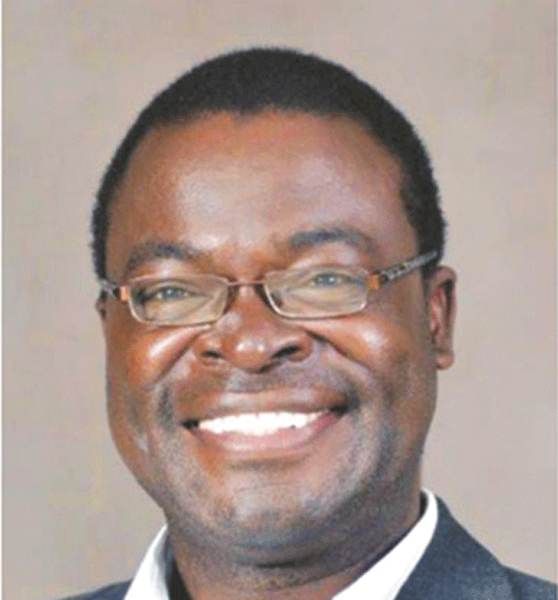
By Phyllis Mbanje
Fifty-six-year-old Maureen Nyamadzawo, who suffers from hypertension, says she has endured one of the toughest months trying to access treatment in Harare.
Nyamadzawo, from Chivi in Masvingo, has been turned away from Sally Mugabe Central Hospital on several occasions after nurses went on strike last month demanding salaries in foreign currency.
Her biggest fear is that she might have contracted Covid-19 during one of her visits to the hospital as she scrambled for public transport.
“I never got treated when I went to Harare Hospital (now Sally Mugabe) and I am now not only worried about lack of treatment, but also afraid that I could be having Covid-19,” Nyamadzawo said during one of her unsuccessful trips to the hospital.
“My relatives have been telling me that experts say people like me with other long-term diseases are likely to die of Covid-19, but I will never know whether I have the coronavirus or not because I cannot get medical attention.”
Nyamadzawo is, however, not alone in her predicament as thousands of Zimbabweans have been struggling to access health care since nurses and other healthcare workers went on strike on June 8.
The strike followed several protests by nurses at the country’s major hospitals as they try to force authorities to address their grievances that include lack of personal protective equipment and drugs.
- Chamisa under fire over US$120K donation
- Mavhunga puts DeMbare into Chibuku quarterfinals
- Pension funds bet on Cabora Bassa oilfields
- Councils defy govt fire tender directive
Keep Reading
A number of patients could be seen lying helplessly on stretchers at the Parirenyatwa Hospital casual department last week as there was no one to attend to them.
“My son, please help my father.
“He is not well and has not been eating,” said a middle-aged woman as she elbowed out another patient in front of her in a slow moving queue.
On that day the skeletal staff selected a few patients considered to be suffering from life-threatening illnesses who were attended to, while the rest were turned away.
“With Covid-19 everywhere, we do not want to be in a public place like this, especially with an elderly person,” said a woman accompanying her aged mother.
Fungisai Dube from Health watchdog Citizens Health Watch (CHW) said their monitors in Bulawayo encountered many cases of stranded patients in recent days.
Dube said it was high time the government addressed the labour disputes in the health sector to save lives.
“These recurrent, decades-long strikes, the corruption, have shone the spotlight on the devastating effects of lack of transparency and accountability that is apparent in the health care sector,” said Dube, who is a CHW trustee.
“It brings into sharp focus government inadequacies and what we feel is inability to effectively invest in the health of its citizens.”
The crisis in the health sector deepened last week after the government fired CEOs of all major hospitals.
Health Services Board chairperson Paulinus Sikosana said the removal of the CEOs was part of a restructuring exercise aimed at bringing sanity and transparency in the health sector.
A source at Parirenyatwa Hospital said admission of patients had been reduced significantly since the strike.
The situation is the same at Chitungwiza Central Hospital, which closed its outpatients section when Covid-19 cases started rising.
“But what is on the ground is that the outpatients was closed long back before the strike,” said a Chitungwiza Central Hospital employee, who requested to remain anonymous.
“We started attending to emergencies by then.”
On surgeries, the source said only emergencies such as caesarean sections were still being done.
At Sally Mugabe Central Hospital, most departments have been affected, including the paediatric wards which are virtually empty.
“There is growing frustration among health care workers about government shortcomings and what appears to be the inability to prioritise the welfare of health workers, a lack of explanation on the extraordinary corruption revelations and how to deal with chronic stressors such as bad infrastructure, poor governance, all obstacles to the country achieving the Sustainable Development Goals,” said Dube.
Meanwhile, the nurses are digging in, saying they can only return to work when their salaries are paid in foreign currency.
In a letter addressed to acting Health minister Amon Murwira, the Zimbabwe Nurses Association (Zina) said salaries in local currency were no longer sustainable as most businesses were now charging in foreign currency.
“If we are to negotiate for an RTGS amount … our salaries will need to be pegged at $203 332, which by merely looking at it, is unrealistic,” Zina said.
“We are aware that there have been efforts to misrepresent the position of the nurses by some quarters.
“We do not see it necessary to comment on this, but we would want to factually bring you into our confidence as to why our members are demanding payment in US dollars.”
Senior doctors last week gave a two-week notice to go on strike demanding to be paid in foreign currency and improvements in their working conditions.
Zimbabwe’s health delivery sector has been hit by strikes for the past two years as rising inflation continues to fuel unrest among government workers.
Last year doctors went on strike for four months until telecoms mogul Strive Masiyiwa offered to pay them US$300 a month in allowances.










